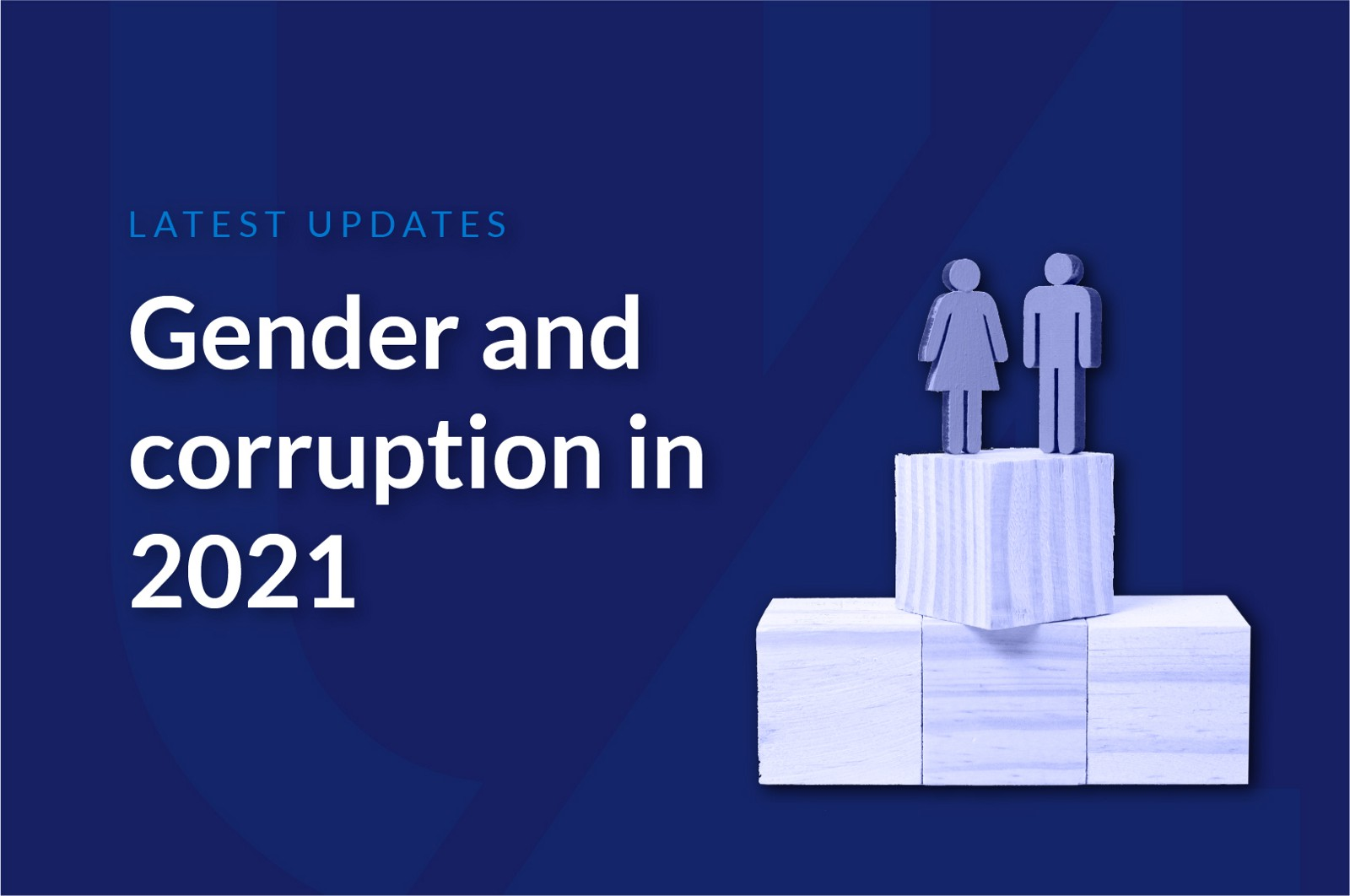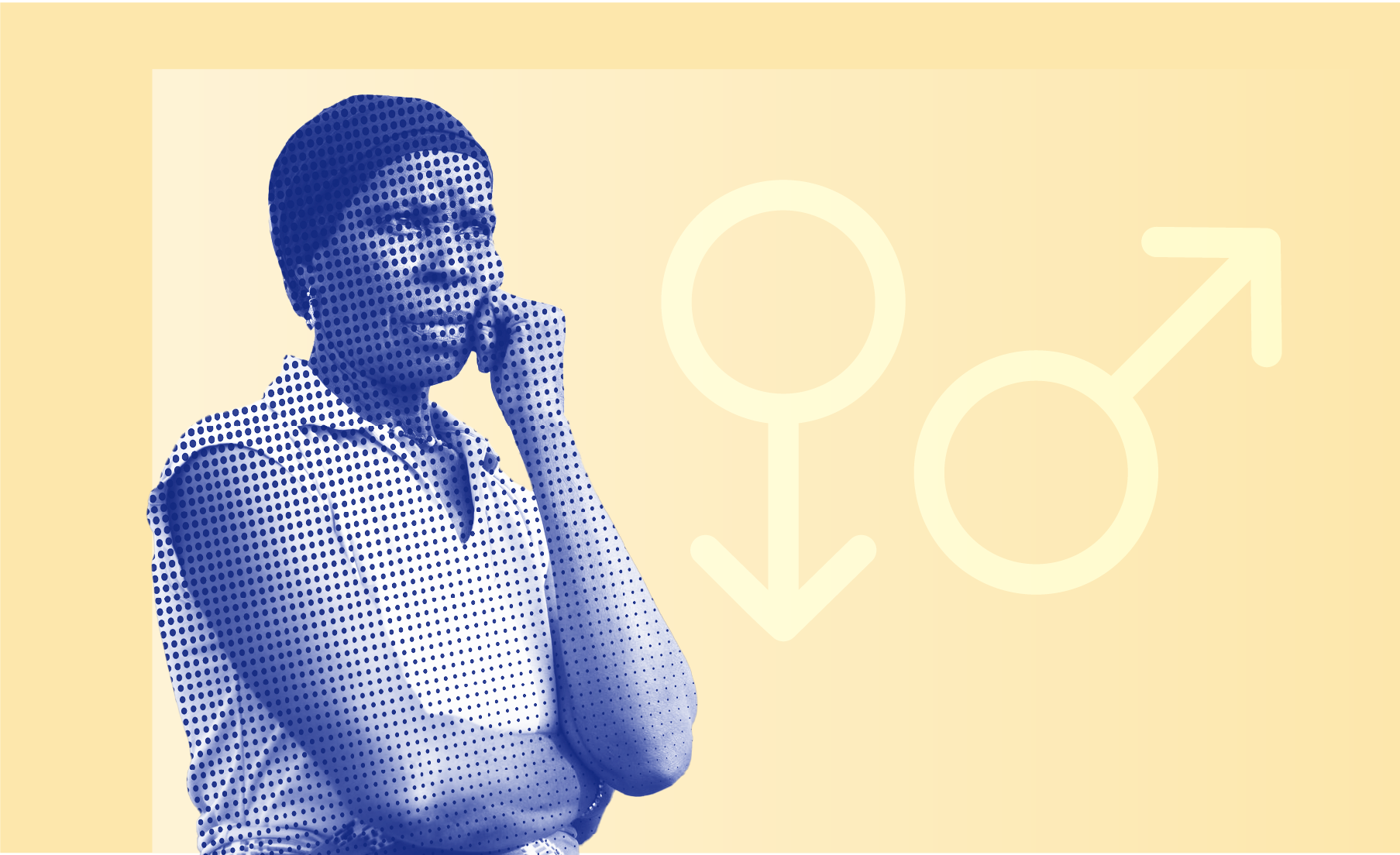Blog
Gender and corruption in 2021: Latest news and research

This update is part of an ongoing series, where we recount what’s been happening with gender and corruption in 2021.
Today, 9 December 2021: International Anti-Corruption Day, we bring you a summary of the latest interesting news articles and academic research findings on the inter-relationship between gender and corruption around the world.
In the news...
This summer, Joe Biden issued an executive order establishing the White House Gender Policy Council. The Council will be responsible for developing a durable gender equity plan as part of domestic and foreign policy.
Gender parity has been achieved in Mexico’s Lower Congress. Will this trend be reflected in its other state institutions? Meanwhile, Albania has now passed Nicaragua as the country with the highest number of women in cabinet.
Honduras's newly elected female president, Xiomara Castro, has vowed to fight corruption. Elsewhere, 'Women are the champions in the fight against corruption', said Nancy Pelosi as she accepted the 'Women for Peace and Security' award at NATO. Similar sentiments were expressed during the Role of Students in the Eradication of Corruption event in Pakistan.
In the Philippines, women have formed the BALAK anti-corruption coalition to ensure that parties and their candidates are serious about fighting corruption. Yet, women subdistrict officers (UNO officers) in Bangladesh face pushback from elected officials when they try to address corruption.
The Economist reports that young women in Russia are responding to state repression by becoming politicians and activists.
South African researchers have launched a platform that highlights the ways gender affects every aspect of migration. This case study on women’s experiences on their trek to Europe is sobering.
Women in Europe are less likely than men to report corruption. Find out why in this article from Transparency International.
Aung San Suu Kyi has been sentenced to jail for incitement and breaking Covid rules while campaigning. The sentence is the first of many verdicts to come as the military government also charged the former president with corruption, election fraud, and violating the official secrets act.
You might also find McKinsey’s study on the benefits of paternity leave – a key part of achieving parity – informative.
We celebrate the role women are playing in addressing corruption. However, we must be careful not to essentialise women as being less corrupt than men.
'When corruption wins, the country loses'. Check out this anti-bribery campaign from Malaysia’s anti-corruption NGO, Rasuah Busters.
Latest research...
Waylen and Southern find that when the probability of detection – or accountability – is low, men and women are equally corrupt. Gendered differences, however, begin to appear once there is more accountability and transparency in place.
Do female managers and entrepreneurs experience corruption differently than their male counterparts? Goel and Nelson find that women, depending on their position, perceive corruption differently.
Women are less likely to be investigated for corruption by enforcement authorities. In China, women are 75% less likely to be arrested than men. The mechanism driving the difference is still unknown.
Bauhr and Charron find that female French mayors reduce corruption risks. The result is driven by newly elected mayors; once incumbency is factored in, the effect disappears.
The stickiness of gendered corruption networks is a persistent problem. The informal networks surrounding male nepotism and patronage are a significant factor.
This recently published paper finds that female public officials in Russia see corruption in public procurement as a problem, compared to men who do not.
Disclaimer
All views in this text are the author(s)’, and may differ from the U4 partner agencies’ policies.
This work is licenced under a Creative Commons Attribution-NonCommercial-NoDerivatives 4.0 International licence (CC BY-NC-ND 4.0)


